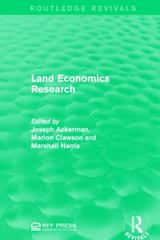Question
Consider the 12 logical fallacies listed in your textbook. Which fallacy applies to each of the following statements? You do not need to explain your
Consider the 12 logical fallacies listed in your textbook. Which fallacy applies to
each of the following statements? You do not need to explain your answer.
a) "The Bible is wrong because it's so old. We need to rely on new information."
b) "During COVID-19, it is important to trust expert sources, such as the World Health Organization and the Canada Public Health Officer."
c) "Marriage has always been between one man and one woman. Therefore, we should not engage in same-sex marriages."
d) "Christianity is stupid. If someone were born in Saudi Arabia, they'd be a Muslim, just by nature of where they're born. Religion is just a fluke."
e) "The idea that manmade climate change is disastrous must be true because it is an obvious fact."
f) "Those who are protesting against COVID-19 lockdowns are wrong because they are just stupid rednecks who do not have an education."
g) "There are only two kinds of people in this world. Those who support human rights, and those who do not."
The 12 Fallacies are
Argumentum Ad Hominem
This is when the person making the argument is attacked, instead of the argument itself. A person can be evil to the core, but his argument may still be sound.
Example: "Priya's arguments against immigration are stupid, because she is a racist!"
Argumentum Ad Populum
This is the fallacious claim that because many or most people believe a proposition to be true, it must be true.
Example: "2 billion people belive in a historical virgin birth, and therefore such a birth must be true."
Appeal to Emotion
Appealing to the emotions of people, instead of using logic and reason.
Example: Consider the following exchange between Priya and Alice, in which Alice demonstrates this fallacy:
- PRIYA:"As a country, we do not have the resources to house and provide for so many refugees. We need to take in fewer refugees than we currently are taking in."
- ALICE:"That's so insensitive! Do you even know what it's like to be a refugee? Don't you know how refugees feel?"
Straw Man Argument
Taking an opponent's argument, and rephrasing it as a weaker argument, in order to easily demolish it. A straw man, or scarecrow, can effortlessly be defeated. In attacking a straw man, an interlocutor is being unfair to his opponent.
Example: The following is a debate between TIM and JIM, on the issue of national defence:
- TIM:"The military is overextended, and we do not need to get involved in foreign, jingoistic adventures. We should cut our defence budget, and bring our troops home."
- JIM:"You want to leave our glorious nation defenceless? Are you insane?"
Red Herring
Deflecting the topic to another issue, which is unrelated to the argument at hand.
Example: Plato and Eusebius are debating politics:
- PLATO:"Senator Sandman's tax plan is fantastic. I'm going to vote for him."
- EUSEBIUS:"But Senator Sandman was a draft dodger. He's a coward. How can you vote for a coward?"
The Genetic Fallacy
Attacking a person, practice, or object based on its origins, which are irrelevant to its present-day meaning.
Example: "You're a Christian, right? Then why are you celebrating Christmas? Don't you know that Christmas comes from a pagan ceremony?"
Post Hoc Ergo Propter Hoc
The claim that since event X precedes event Y, it must be that XcausesY.
Example: "Every time I wear my special jersey, the Leafs win the hockey game. My jersey must cause them to win."
Argument From Authority/Experts
The assertion that because an authority figure, or figures, claims something to be true, it must be true. Instead of tackling the argument directly, the lazy person appeals to scientists, lawyers, experts, etc.5
Example: "There is a scientific consensus that anthropogenic global warming is real. Therefore, it must be real."
Begging The Question
When the conclusion is assumed, or hidden, in one of the premises.
Example: "Murder is wrong, because murdering people is immoral."
Appeal to Novelty
The claim that what is new or modern is superior to that which is old.
Example: "We are living in the modern age, and thus continue to progress morally and in terms of human rights."
Appeal to Tradition
The claim that what is traditional, or old, is superior to that which is new or modern.
Example: "Chattel slavery has been practiced for thousands of years, so we should continue to do it."
False Dilemma
When only two choices are presented, even though more than two exist.
Example: "Either you are for me, or you are against me."
Step by Step Solution
There are 3 Steps involved in it
Step: 1

Get Instant Access to Expert-Tailored Solutions
See step-by-step solutions with expert insights and AI powered tools for academic success
Step: 2

Step: 3

Ace Your Homework with AI
Get the answers you need in no time with our AI-driven, step-by-step assistance
Get Started


